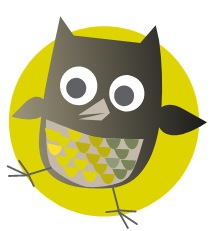When your child has successfully mastered phonics and word-reading, it can be a time of pride – and even relief! It’s a big and important milestone in a child’s learning journey but, in terms of their reading career, it’s just the beginning.
Children still need to develop their comprehension, fluency, and vocabulary to take them through their junior years and become ready for secondary school. When they reach secondary school, lots of the information they need to access will be presented in a written form. If they can read quickly and efficiently with good understanding, it will help them in all their secondary school subjects.
How you can help your junior reader
Luckily, there’s lots you can do to support your child’s reading in the junior years. Here are some ideas.
1. Read regularly
Encourage your child to read as much as possible, and try to keep reading regular and consistent if you can. Twenty to thirty minutes a day is a good target to aim for.
2. Talk about books
Talking to your child about what they are reading helps to build reading motivation. Your interest will spark their interest, and conversation with you will help them articulate their thoughts, extend their vocabulary, and strengthen their understanding of what they’ve read.
3. Choose interesting books
In general, letting your child choose their own books is a great way to keep them engaged with reading, but don’t be afraid to point them in the right direction every now and then. Be sure to suggest options to them based on their interests, including texts beyond their favourite authors. You can find lots more advice on how to do this on our How to choose a book for ages 7–11 blog post.
The Owl eBook library is a great place to find free eBooks for junior readers (Books at Oxford Level 10 and above are likely to be most suitable). We’ve recently added lots more free eBooks to support junior readers during Covid-19 school closures.
4. Choose interesting non-books
Remember that reading doesn’t just have to involve books: magazines, instruction manuals, recipes, and so on all help to build up stamina, understanding, and fluency.
5. Read to your child
As well as asking your child to read to you, it can be really useful to take some time out to read to them too. Research shows that parents often stop reading to their children in the junior years, but there are great benefits to keeping your reading time going. Learn more in our blog post, Carry on reading aloud.
6. Ask your child questions
When your child is reading to you or with you, you could help them to develop their comprehension skills by asking questions. Below are examples of good questions to ask. Remember to prompt them to justify their answers by referring to the text as well:
- What do you think the book will be about?
- Can you tell me what’s happened so far?
- What do you think will happen next?
- Why do you think the character did…?
- What do you think the author wants us to think?
- How did you feel when…?
- Can you think of a similar experience that you’ve had?
- Who do you know who is like…?
- How did the character change in this story?
- What do you think are the most important things in this chapter/section?
7. Consider levelled books
Many children will benefit from adding more structure into their reading experience. Find out more about book levelling for older children in our blog post: How reading programmes can help junior readers.
If you are looking for more guidance on what kinds of questions to ask your child, the books in the Oxford Owl eBook library have parent notes on the inside covers to help you further.
Video support
What is comprehension?
Supporting your child’s reading comprehension
More from Oxford Owl
- Web page: Oxford Owl eBook library
- Web page: Common reading issues
- Blog: How reading programmes can help junior readers
- Blog: How to choose a book for ages 7–11
- Blog: Not your typical books for boys
- Blog: How to build a girl

